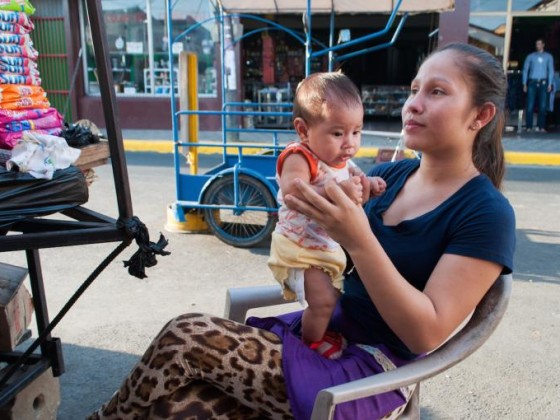LEON, Nicaragua — Three generations of women, each barely more than 15 years apart, operate a family business near Leon’s central market. On a nearby corner, a 19-year-old breastfeeds her tiny baby. Teen mothers are a common sight here.
Nicaraguans have children at an extraordinarily young age. This is considered normal, not shameful. If a woman reaches 20 and does not have at least one child, friends feel sorry for her and say, “The train has left the station.”
